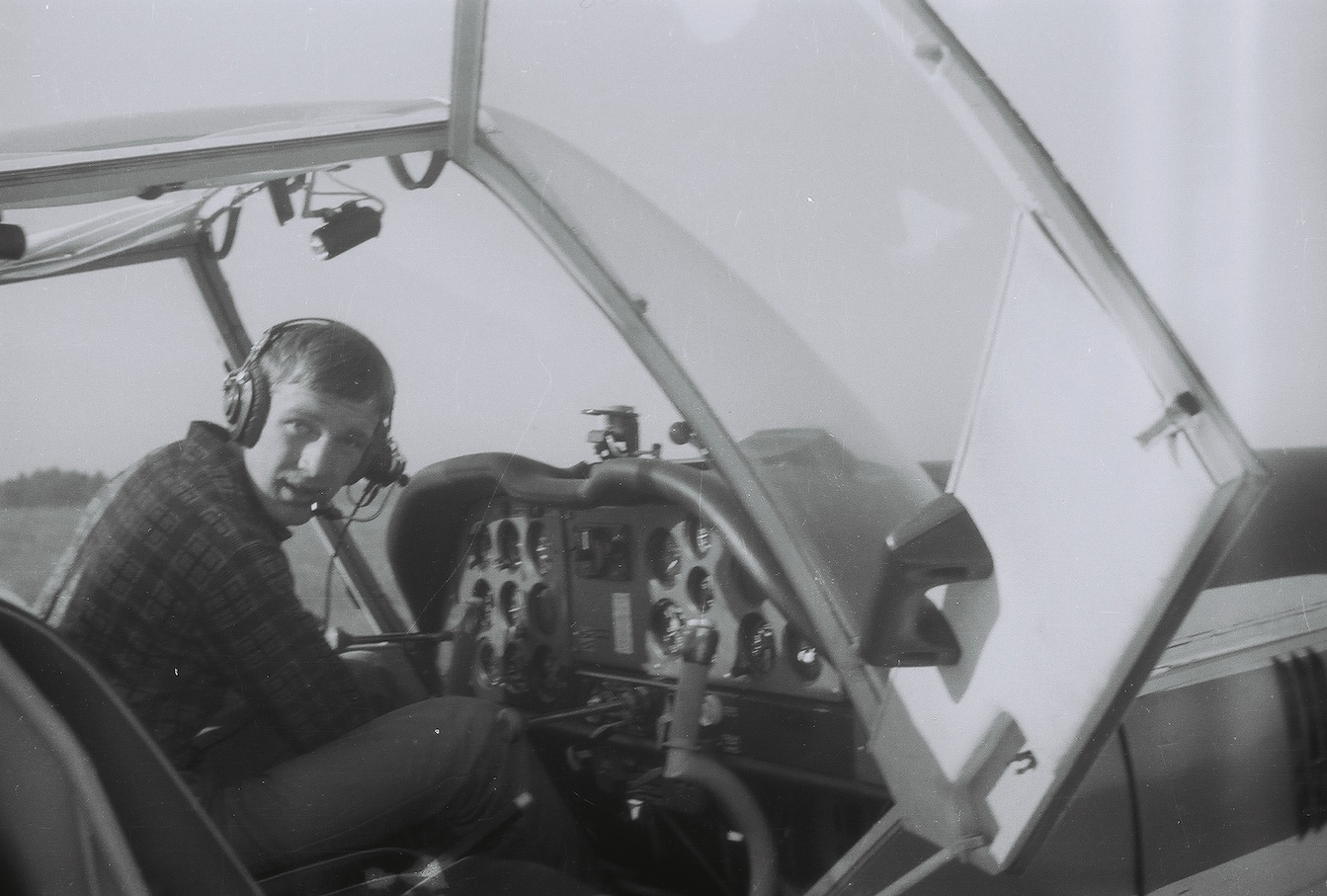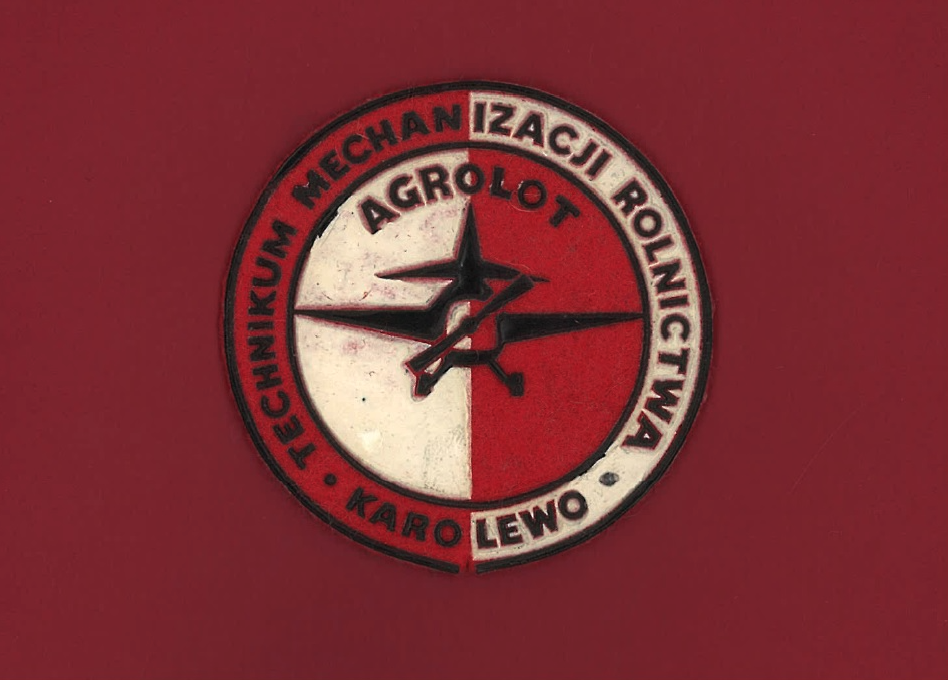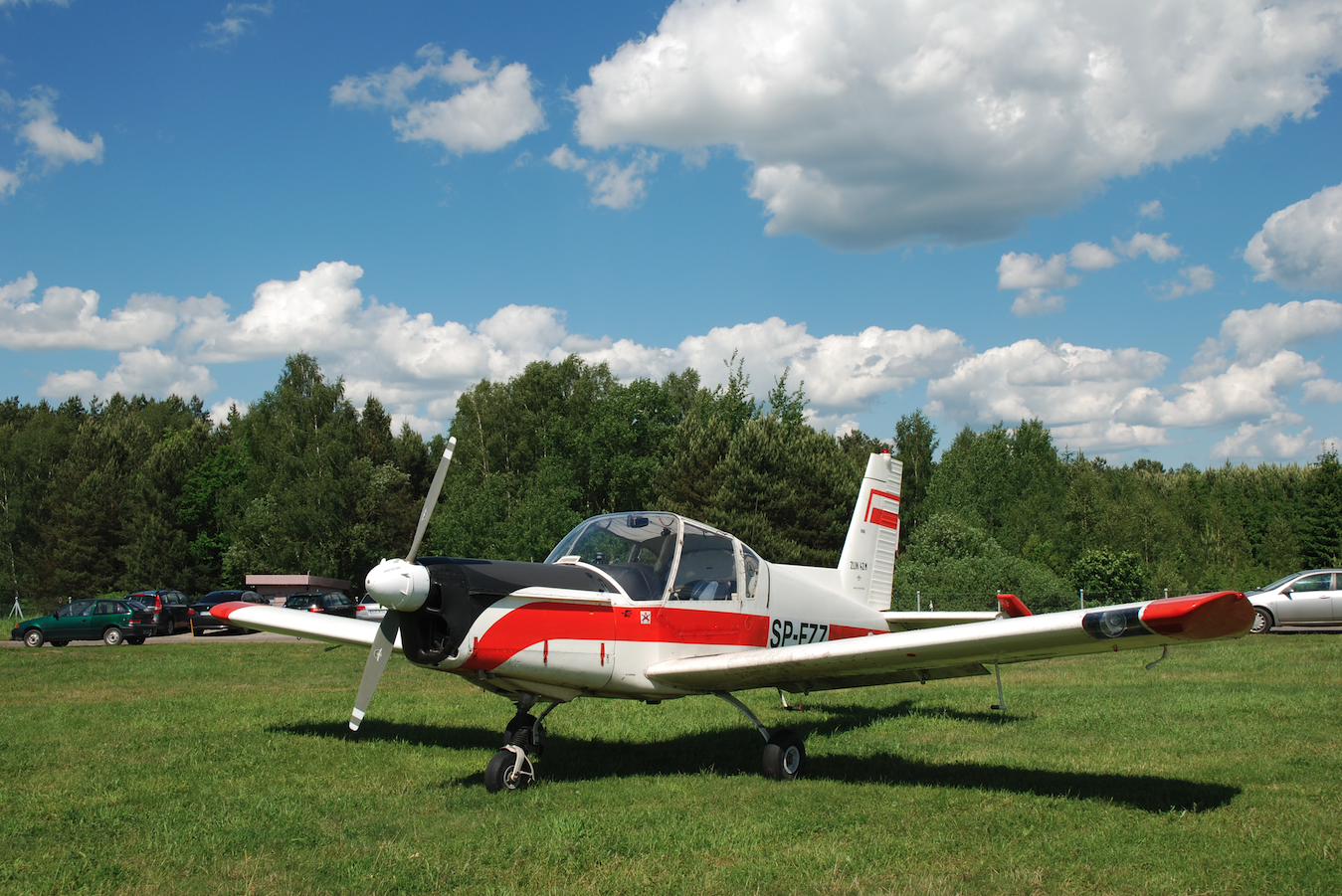Polska 2020-01-07
Szkoła Agrolotników w Karolewie 1980-1983
W 2012 roku, na naszej stronie internetowej zamieściliśmy artykuł po tytułem – „Szkoła Agrolotników w Karolewie 1975r.-1980r.” Opisaliśmy w nim krótką historię tej Szkoły. Okazało się jednak, że popełniliśmy nieświadomie błąd: były, owszem, trzy roczniki (1975, 1976, 1977), ale był także czwarty nabór, który przeprowadzono w 1980 roku.
Dzięki Panu Bogdanowi Kozłowskiemu, absolwentowi czwartego rocznika 1980-1983, możemy przytoczyć dalszą historię Szkoły agrolotników w Karolewie.
Na początku wyjaśnimy nazwę Szkoły. Określenie Szkoła agrolotników nie jest ścisła. To potoczna nazwa, którą często używano. Spotykano także określenie Szkoła pilotów agro. Tak naprawdę była to Szkoła Lotnicza, ponieważ opuszczało się ją z licencją pilota samolotowego zawodowego. Ponieważ sama licencja do niczego nie uprawnia, dopiero później zdobywa się uprawnienia wpisywane do tej właśnie, komercyjnej licencji. W oddziałach Zakładu Usług Agrolotniczych zdobywało się „Uprawnienie do Lotów Agro”.
Szkoła była na poziomie szkoły średniej, czyli naukę kończyła matura i prawo rozpoczęcia studiów.
Technikum o specjalności Agrolotnictwo powołane było na wniosek Centrum Naukowo-Produkcyjnego Samolotów Lekkich PZL Warszawa WSK-Okęcie. Po pierwszych trzech rocznikach nastąpiła przerwa w naborze. Zdecydowano o wznowieniu czwartego naboru w 1980 roku, i jak się okazało ostatniego rocznika. Około 100 młodych mężczyzn zgłosiło chęć przyjęcia do klasy. Kandydaci pochodzili głównie z zachodniej i północnej Polski. Wszyscy oni zostali skierowani na badania lotniczo-lekarskie we Wrocławiu – Główny Ośrodek Badań Lotniczo Lekarskich – GOBLL. Ostatecznie do klasy zakwalifikowano ponad trzydziestu uczniów. (Prawdopodobnie 35 uczniów). Naukę rozpoczęto we wrześniu 1980 roku.
Niespodziewanie, w styczniu 1981 roku, zdecydowano o zaprzestaniu nauki i rozwiązaniu klasy technikum. Uczniowie byli zaskoczeni, nie znali przyczyn, nikt im nie wyjaśnił i nie przeprosił. Cały czas traktowano ich przedmiotowo. Sucho, zakomunikowano im, że mogą przenieść się do innych szkół. Proponowano między innymi technikum kolejowe.
Decyzja o rozwiązaniu klasy przyszła z Warszawy. Przypuszczalnie wpłynął na nią zły stan ówczesnej gospodarki i zachowawcze działania dyrekcji PZL-Okęcie.
Młodzi ludzie całą noc gorąco dyskutowali. Podejmowali decyzje – Co dalej zrobić? Postawa młodych, zdeterminowanych, inteligentnych uczniów zaskoczyła wszystkich. Nie zgodzili się na takie dictum i podjęli strajk głodowy połączony z bardzo szeroko zakrojoną i dynamiczną akcją informacyjną. Wzięli koce z internatu i poszli strajkować do budynku szkoły, do ich klasy. Postanowili nic nie jeść i pić tylko herbatę. Bez lotnictwa nie widzieli dalszego życia. Może było im łatwiej przyjąć taką postawę, bo przez Polskę w tym czasie przetaczały się strajki, w czasie których społeczeństwo żądało poprawy bytu.
Ówczesny dyrektor Szkoły Pana Ryszard Melnarowicz uszanował postawę uczniów. Nie próbował uczniów spacyfikować. Troszczył się o bezpieczeństwo protestujących.
Uczniowie uderzyli w najwyższe tony – PZPR, urzędy centralne, znane osobistości… Udało się. Szkołę przywrócono do życia.
Po 48 godzinach głodówki odnieśli zwycięstwo. Decyzję o rozwiązaniu klasy cofnięto. Dwudziestu trzem umożliwiono szkolenie lotnicze. Z jeszcze większym zapałem wzięli się do nauki. Pomagali sobie nawzajem.
Przed rozpoczęciem szkolenia praktycznego wysłano ich na egzaminy państwowe do licencji turystycznej. Były ostre, bo po nich zostało tylko dwadzieścioro, i tylu zaczęło szkolenie w locie.
Rozpoczęły się wakacje. Szkoła opustoszała, a pozostali tylko przyszli agrolotnicy, którzy przez własnego wychowawcę byli nazywani „Latawce”. Kursanci od wczesnego rana do wieczora przebywali na lotnisku Kętrzyn-Wilamowo. Każdy miał wylatać 40 godzin, a były problemy z samolotami.
Początkowe szkolenie było na szybowcach, a potem przyszła kolej na motoszybowiec Ogar. Następnie były samoloty; PZL-Koliber i Zlin-42 oraz śmigłowiec Mi-2. Na śmigłowcach szkoliła się tylko część uczniów pierwszego rocznika. Potem zaprzestano. Praktycznie cały sprzęt był Polskiej produkcji. Jedynie samolot Zlin 42 był produkcji Czechosłowackiej.
Po dwóch tygodniach szkolenia, szef pilotów Zakładu Usług Agrolotniczych wykonał z każdym z uczniów lot sprawdzający mający wyselekcjonować najlepszych. Po tym teście zostało ich 15.
W październiku 1981 roku, kursanci stanęli przed Lotniczą Komisją Egzaminacyjną i zostali pasowani na pierwszy stopień pilota, otrzymując Licencję Turystyczną. Licencje wręczył Główny Inspektor Personelu Latającego PRL, pułkownik Zdzisław Skomorowski.
Po otrzymaniu licencji turystycznej uczniowie z własnej woli złożyli lotnicze przyrzeczenie:„W dniu otrzymania licencji pilota samolotowego turystycznego przyrzekam uroczyście: - wykonywać powierzone mi czynności pilota samolotowego, zgodnie z prawem lotniczym i przepisami lotniczymi oraz z regułami sztuki pilotażu i użytkowania samolotu, - przestrzegać reguł etyki i dyscypliny lotniczej, - dbać o bezpieczeństwo lotów, bezpieczeństwo powierzonych mi pasażerów i członków załogi samolotu, - wykonywać loty w sposób nie zagrażający bezpieczeństwu ruchu lotniczego oraz osób i mienia na ziemi, - troszczyć się o powierzone mi samoloty i inny sprzęt lotniczy.”
Był to piękny gest, świadczący o wysokiej kulturze lotniczej tych młodych mężczyzn. Pilotów, którzy dla spełnienia swoich marzeń wyrzekli się wielu rzeczy i konsekwentnie dążyli do celu.
Licencję pilota turystycznego otrzymali: Gabriel Gałgan, Dariusz Kalczuk, Edward Kleist, Bogdan Kozłowski, Andrzej Lewandowski, Tadeusz Lizurej, Sławomir Napiórkowski, Marek Nasiadka, Norbert Pakuła, Dariusz Pinczyński, Józef Rupiński, Dariusz Sionkowski, Dariusz Stala, Sławomir Szatkowski, Bronisław Ślężak.
Ostatecznie szkołę ukończyło 14. uczniów. Był to 1983 rok.
Jak widzimy selekcja cały czas była bardzo ostra. Prawdopodobnie dlatego, że ówczesna dyrekcja PZL-Okęcie nie widziała zapotrzebowania na kolejnych pilotów, a w każdym razie nie tak dużego zapotrzebowania. Byli więc na swój sposób konsekwentni. Jeśli już szkolić to garstkę najbardziej obiecujących.
Kadra szkoleniowa na lotnisku w Kętrzynie była bardzo przyjaźnie ustosunkowana do uczniów, choćby dlatego, że mieli dzięki nim pracę. Poza tym wiedzieli, jak zdeterminowani są kursanci. Takie osoby szkoli się bardzo dobrze i postępy są szybkie.
Co było później? Polska gospodarka przedstawiała obraz nędzy i rozpaczy, więc uczniom było bardzo trudno znaleźć miejsce pracy w zawodzie. Niektórym się nie udało, niektórzy wyemigrowali. Tak zakończyła się historia szkoły agrolotników w Karolewie.
Opracował Bogdan Kozłowski, Karol Placha Hetman



